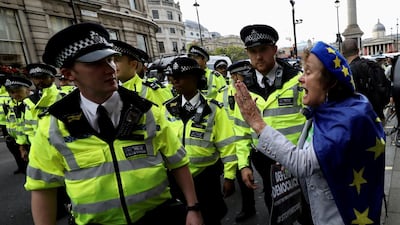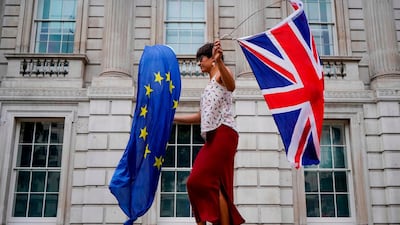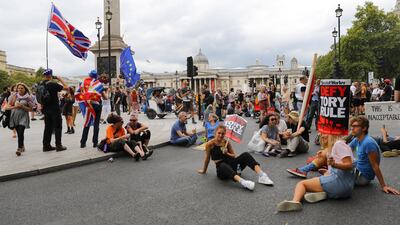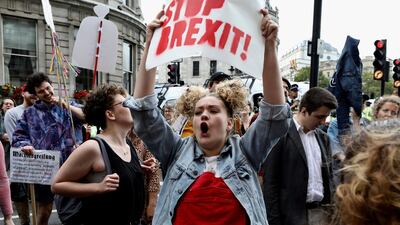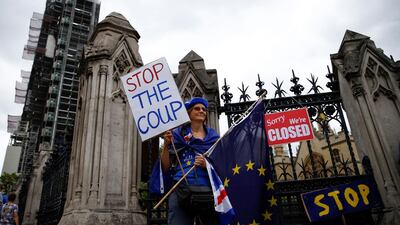Thousands of people across the UK took part in public demonstrations on Saturday voicing their anger against Boris Johnson’s decision to suspend Britain’s parliament for up to five weeks.
Central London was brought to a standstill as protesters marched towards the Houses of Parliament, chanting “Boris Johnson, shame on you”.
Sit-down protests also took place outside Buckingham Palace and across London’s West End shopping district.
Demonstrations were held across 34 towns and cities, including Manchester, Liverpool, Cambridge, Edinburgh and Belfast.
Protesters also gathered outside Balliol College, Oxford University, where Britain’s prime minister studied.
Anti-Brexit protests also happened on Saturday on mainland Europe, in Amsterdam, Berlin and Riga.
Labour leader Jeremy Corbyn attended a rally in the Scottish city of Glasgow.
“Demonstrations are taking place everywhere because people are angered and outraged about what is happening,” he said.
Mr Johnson’s decision to suspend parliament on Wednesday sparked outrage across political parties looking to stall a no-deal Brexit.
His decision to prorogue parliament, the official term used to suspend parliament with permission from the Queen, means MPs have no time to pass through legislation that could prevent Britain crashing out of the European Union without a deal.
Former British prime minister Sir John Major announced on Friday that he will take legal action against the current occupant of 10 Downing Street to stop the suspension of parliament before the October Brexit deadline.
Mr Major announced on Friday his plan to join one of three legal efforts to prevent the current premier Boris Johnson from cutting the number of days that MPs would sit.
MPs loyal to Mr Johnson claim that the suspension has precedence in a country that has no written constitution. It relies on previous practice as a guide to parliamentary procedures and making laws.
